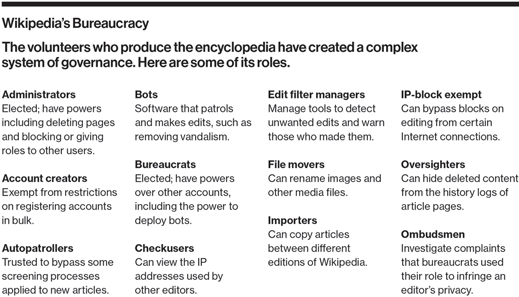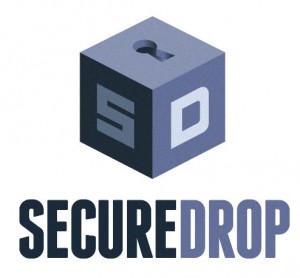The sixth most widely used website in the world is not run anything like the others in the top 10. It is not operated by a sophisticated corporation but by a leaderless collection of volunteers who generally work under pseudonyms and habitually bicker with each other.
[…]
Because there is no other free information source like it, many online services rely on Wikipedia. Look something up on Google or ask Siri a question on your iPhone, and you’ll often get back tidbits of information pulled from the encyclopedia and delivered as straight-up facts.
Yet Wikipedia and its stated ambition to “compile the sum of all human knowledge†are in trouble. The volunteer workforce that built the project’s flagship, the English-language Wikipedia—and must defend it against vandalism, hoaxes, and manipulation—has shrunk by more than a third since 2007 and is still shrinking.
Category Archives: Did you Know?
Freedom of the Press Foundation Launches SecureDrop, an Open-Source Submission Platform for Whistleblowers
Freedom of the Press Foundation has taken charge of the DeadDrop project, an open-source whistleblower submission system originally coded by the late transparency advocate Aaron Swartz. In the coming months, the Foundation will also provide on-site installation and technical support to news organizations that wish to run the system, which has been renamed “SecureDrop.â€
Joining the Surveillance Society: New Internet Users in an Age of Tracking
From a New America Foundation report:
Recent digital inclusion policies that aim to increase digital literacy of new Internet and computer users, promote civic engagement, and improve economic development do not currently address the privacy needs of new users. This paper presents an in-depth look at surveillance and privacy problems faced by individuals who turn to digital literacy organizations for training and Internet access, including low income individuals, people of color, immigrants, the elderly, and non-English speakers.
These individuals are coming online without adequate skills, know-how, and social support to confront digitally enabled government surveillance and corporate intrusions of personal privacy.
The paper also details the challenges, such as limited resources, time, and expertise, that providers face when teaching users how to stay safe online.
New Internet users should not have to choose between going online and feeling safe, secure, and free from surveillance.
Now, more than ever, digital inclusion policies need to pay greater attention to developing providers’ expertise and capacity to handle privacy and surveillance concerns of new Internet users. Privacy advocates and developers also have a role to play. Expanding “digital literacy†to include privacy education requires that privacy protecting tools become easier to use. Until then, the benefits of digital inclusion are at odds with the potential harms wrought by a surveillance society.
Committee to Protect Journalists Report Gauges the Press Freedom Crisis in the US
The Committee to Protect Journalists just released their first ever report on press freedom in the US. For those who have followed the administration’s policies, court cases and actions related to leaks and the press, the report doesn’t contain a lot of new information.
What it does is weave together each of the cases and strategies the administration has pursued, surfacing key themes and illustrating that these examples are not aberrations, but part of a coordinated strategy.
Presenting this bigger picture reframes the debate over press freedom in America and reminds us that we need to demand a major course correction.
Committee to Protect Journalists Report Gauges the Press Freedom Crisis | Free Press.
The prize you should be paying attention to today: PEN Pinter Prize
…[T]he prize awarded this week that’s really worth paying attention to is the PEN Pinter Prize, given annually to both a British writer and an “international writer of courage.â€
This year’s recipients are Tom Stoppard and the Belarusian journalist Irina Khalip, who writes for Novaya Gazeta and has consistently covered election fraud, human rights abuses, and the activities of the Belarusian security services, the KGB (not that KGB, but the successor to the same).
…
Khalip received the PEN Pinter award…on a significant date: October 7, the anniversary of the murder of the Russian journalist Anna Politkovskaya, author of Is Journalism Worth Dying For? and, like Khalip, a reporter for Novaya Gazeta. Khalip paid a low-key but moving tribute to her in her acceptance speech, saying: “I have to start my short speech with the name of Anna Politkovskaya… Seven years ago this day she was killed. She was a courageous journalist, a person who cared and my colleague.â€
The prize you should be paying attention to today | MobyLives.



